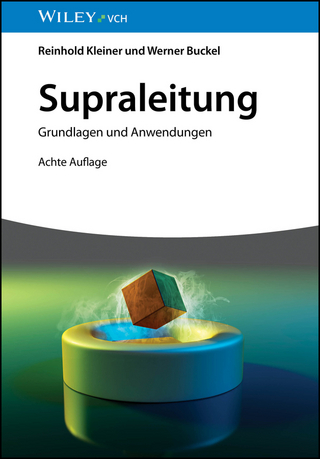Quantum Quenching, Annealing and Computation
Springer Berlin (Verlag)
978-3-642-11469-4 (ISBN)
The process of realizing the ground state of some typical (frustrated) quantum many-body systems, starting from the 'disordered' or excited states, can be formally mapped to the search of solutions for computationally hard problems. The dynamics through the critical point, in between, are therefore extremely crucial. In the context of such computational optimization problems, the dynamics (of rapid quenching or slow annealing), while tuning the appropriate elds or uctuations, in particular while crossing the quantum critical point, are extremely intriguing and are being investigated these days intensively. Several successful methods and tricks are now well established. This volume gives a collection of introductory reviews on such developments written by well-known experts. It concentrates on quantum phase transitions and their dynamics as the transition or critical points are crossed. Both the quenching and annealing dynamics are extensively covered. We hope these timely reviews will inspire the young researchers to join and c- tribute to this fast-growing, intellectually challenging, as well as technologically demanding eld. We are extremely thankful to the contributors for their intensive work and pleasant cooperations. We are also very much indebted to Kausik Das for his help in compiling this book. Finally, we express our gratitude to Johannes Zittartz, Series Editor, LNP, and Christian Caron of physics editorial department of Springer for their encouragement and support.
Quantum Approach to Classical Thermodynamics and Optimization.- Non-equilibrium Dynamics of Quantum Systems: Order Parameter Evolution, Defect Generation, and Qubit Transfer.- Defect Production Due to Quenching Through a Multicritical Point and Along a Gapless Line.- Adiabatic Perturbation Theory: From Landau-Zener Problem to Quenching Through a Quantum Critical Point.- Quench Dynamics of Quantum and Classical Ising Chains: From the Viewpoint of the Kibble-Zurek Mechanism.- Quantum Phase Transition in the Spin Boson Model.- Influence of Local Moment Fluctuations on the Mott Transition.- Signatures of Quantum Phase Transitions via Quantum Information Theoretic Measures.- How Entangled Is a Many-Electron State?.- Roles of Quantum Fluctuation in Frustrated Systems - Order by Disorder and Reentrant Phase Transition.- Exploring Ground States of Quantum Spin Glasses by Quantum Monte Carlo Method.- Phase Transition in a Quantum Ising Model with Long-Range Interaction.- Length Scale-Dependent Superconductor-Insulator Quantum Phase Transitions in One Dimension: Renormalization Group Theory of Mesoscopic SQUIDs Array.- Quantum-Mechanical Variant of the Thouless-Anderson-Palmer Equation for Error-Correcting Codes.- Probabilistic Model of Fault Detection in Quantum Circuits.
| Erscheint lt. Verlag | 11.5.2010 |
|---|---|
| Reihe/Serie | Lecture Notes in Physics |
| Zusatzinfo | XII, 320 p. |
| Verlagsort | Berlin |
| Sprache | englisch |
| Maße | 155 x 235 mm |
| Gewicht | 1000 g |
| Themenwelt | Naturwissenschaften ► Physik / Astronomie ► Atom- / Kern- / Molekularphysik |
| Naturwissenschaften ► Physik / Astronomie ► Hochenergiephysik / Teilchenphysik | |
| Naturwissenschaften ► Physik / Astronomie ► Quantenphysik | |
| Naturwissenschaften ► Physik / Astronomie ► Theoretische Physik | |
| Schlagworte | classical and quantum Ising model • frustrated quantum many-body systems • Monte Carlo Method • Optimization • quantum circuits • quantum critical points • quantum phase transitions • quenching and anneiling • Renormalization Group • Spin Glasses |
| ISBN-10 | 3-642-11469-5 / 3642114695 |
| ISBN-13 | 978-3-642-11469-4 / 9783642114694 |
| Zustand | Neuware |
| Haben Sie eine Frage zum Produkt? |
aus dem Bereich




